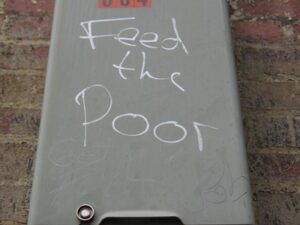As the health and fitness industry struggles to re-invent itself, another fitness operator has declared bankruptcy. YouFit Health Clubs, which operates 85 locations in 10 states, filed for Chapter 11 bankruptcy protection in federal court in Florida on Tuesday. YouFit joins a growing list of gym operators that have sought protection from creditors during the COVID-19 pandemic.
In court filings, YouFit disclosed that it has assets of between $50M and $100M and liabilities of between $100M and $500M. Most of the company’s creditors are landlords. More than 70% of YouFit’s locations are in Southern Florida.
The State of Florida allowed gyms to re-open in late May, but only under a relatively severe set of restrictions. Operators must enforce mask-wearing, even during workouts and must disinfect machines regularly. With capacity and operations limits, Florida gyms are having a hard time recovering from pandemic-related losses. Many patrons have elected not to return to their health and fitness clubs. Instead, they have turned to home fitness equipment and virtual workouts as a substitute for going to the gym.
Sales of fitness equipment, including free weights, treadmills, spinning machines and stationary bikes have exploded since March. In the second quarter of 2020, fitness equipment manufacturer Nautilus reported that its sales nearly doubled. Peloton reported sales growth of 172% over last year. Home fitness equipment is so popular that most equipment is currently sold out.
YouFit had followed a Planet Fitness business model, which offers a $10/month membership fee and an annual fee of $39.99.
Fitness operators are lobbying Congress to include health and fitness centers in upcoming coronavirus relief packages. An industry study released by the International Health, Racquet and Sportsclub Association indicated that as much as 25% of the nation’s fitness clubs could close at the end of the year without federal assistance.
Pandemic exposes health and fitness weakness
WCC faces the same issue that many fitness operators have discovered. Being closed or losing membership does not change the operation’s overhead enough to avoid huge losses. In WCC’s case, the Health and Fitness Center is a taxpayer-subsidized operation. The Board of Trustees did nothing to shield the taxpayers from the building’s extraordinary losses. And WCC reported that the Health and Fitness Center’s year-end performance included nearly a $1M loss.
The building’s business model relied on oversubscription, which is currently off-the-table due to COVID-19 restrictions. Further, no business model can help the massive shrinking demand for the building’s services. Unfortunately, WCC will continue to redirect its operating dollars to paying off loan debt on the building through 2027.
The Trustees failed to protect the public from this extraordinary risk, and WCC has no plan to limit the building’s losses. Nor have the Trustees or the WCC administration offered a plan to get out from under this loser.
Photo Credit: wfowlkes , via Flickr





























